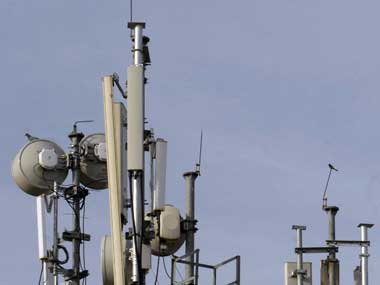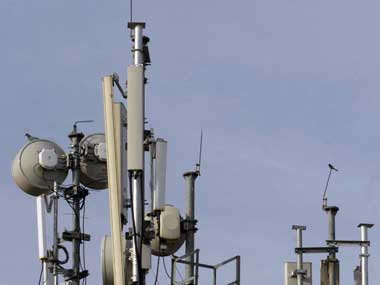New Delhi: Why charge only us for liberalising spectrum at new, higher rates and not the CDMA operators? Once again, the GSM versus CDMA mobile operators’ war is out in the open.
A day before the Empowered Group of Ministers (EGoM) is scheduled to meet under the chairmanship of Home Minister P Chidambaram, the GSM operators have written to him protesting against the new reserve price for converting existing spectrum to ’liberalised spectrum’. Liberalised spectrum means using the same spectrum to provide any kind of service - 2G or 3G, voice or data.
Chidambaram will chair the eGoM meeting for the first time since this group was constituted and the GSM lobby, under Cellular Operators Association of India (COAI), is merely saying what it has been saying all along - that existing operators should not be charged for converting spectrum to ’liberalised’ spectrum at new rates which are yet to be decided.
[caption id=“attachment_374836” align=“alignleft” width=“380”]
 Spectrum pricing. Reuters[/caption]
Spectrum pricing. Reuters[/caption]
But the letter assumes significance since it questions the guidelines issued on 3 July by the Department of Telecom (DoT) which specified that such conversion is needed only for 1,800 Mhz spectrum band, or GSM operations in 2G, not in 800 Mhz band, which is used by the CDMA operators.
Though CDMA players explain this by saying that only GSM spectrum can be liberalised right now since contiguous 5 Mhz of CDMA spectrum is not available, this has not stopped the powerful GSM lobby from crying foul. Chidambaram needs to decide if the base price recommended by sector regulator Telecom Regulatory Authority of India (Trai)-Rs 3,622 crore per Mhz-is suitable for 2G auctions. The GSM players obviously find this price exorbitant for acquiring fresh spectrum as also converting existing spectrum to make it technology neutral.
Impact Shorts
More Shorts“Para 5 and 6 of the guidelines proceed on the premise that the present spectrum assignments are not liberalised. The premise is incorrect, being against policy and licence conditions and otherwise also arbitrary. Such guidelines are, therefore, legally flawed……the exclusion of 800 Mhz in the clause 6 of these guidelines also creates serious discrimination by selectively wrongly declaring 1,800 Mhz as unliberalised spectrum,” COAI letter states.
It also terms Trai’s base price calculations erroneous, saying the spectrum held by incumbents is already liberalised. “Trai, while recommending a reserve price, has erroneously concluded that the present spectrum is not liberalised and has, therefore, recommended an astronomically high reserve price for 1,800 Mhz on the ground of liberalisation of spectrum,” the letter adds.
The letter alleges that GSM operators’ representations on this issue have been consistently disregarded by the DoT and its contention that the present spectrum in unliberalised is not legally tenable.
At the meeting on Thursday (12 July), Chidambaram will have to take a call on the base price for auctions as well as whether incumbent operators should be charged the new price for the next 20 years. But decisions on both these aspects would be finally ratified by the Cabinet. At Thursday’s meeting, Trai chairman Rahul Khullar is expected to make a detailed presentation on how the recommended base price could impact tariffs, investments in the Indian telecom sector and the viability of current operators.
)